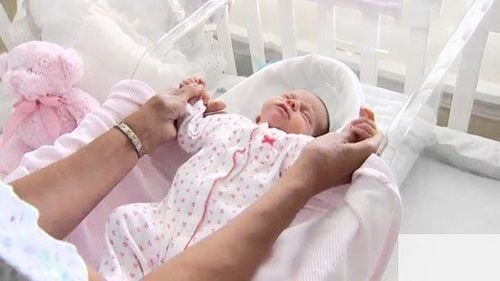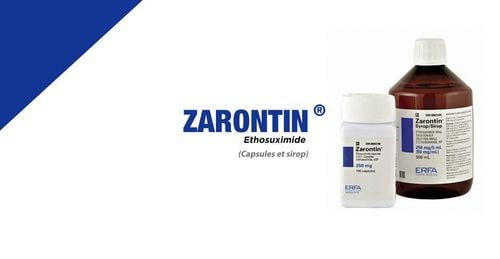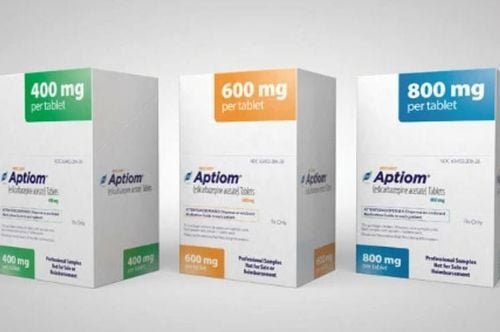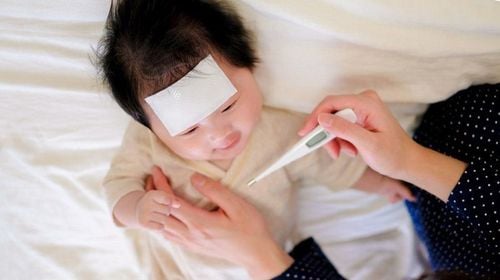This is an automatically translated article.
The article was professionally consulted by resident Doctor Ho Thi Hong Tho - Neonatologist - Department of Pediatrics - Neonatology - Vinmec Phu Quoc International General Hospital.Seizures in newborns are often subtle and easy to miss. There are many causes of infant convulsions and determining the exact cause is very important in managing this condition.
1. Seizures in infants are often subtle
Infants who have twitching of their limbs while sleeping but when they are held, held, or changed in position, the symptoms will disappear, this is not a disease caused by a seizure but just a benign muscle tremor and will go away on its own. In the case of a child having a convulsion, but when being held and changed, the symptoms do not go away, it can be concluded that the child has a convulsion. In the case of neonatal convulsions, infantile convulsions manifest themselves in a variety of ways but are sometimes subtle. Therefore, parents when caring for children need to pay attention to the following important signs:Seizure symptoms: Abnormal movements or changes in muscle tone of the trunk and extremities with manifestations such as: Generalized convulsions body or focal, onset of generalized spasticity or hypotonia; Abnormal movements in the face, mouth, tongue,...; There is abnormal movement in the eye area. Other symptoms: Valuable in the diagnosis of causes and prognosis: fontanelle bulge; Respiratory failure with manifestations such as cyanosis, dyspnea, apnea; Anemia ; Focal nerve damage: Paralysis of cranial nerves or extremities; Fever and signs of infection ; The baby's head circumference is unusually large or small. Finding and treating the cause of infantile convulsions is of great significance in controlling and managing this condition.
Trắc nghiệm: các chỉ số cần chú ý về sự phát triển thể chất của trẻ
Chiều cao, cân nặng của bé ở từng giai đoạn nên là bao nhiêu là bình thường, bao nhiêu là bất thường? Cùng ThS.BS Ma Văn Thấm điểm lại xem bạn đã nắm được các chỉ số phát triển thể chất của bé chưa nhé!The following content is prepared under supervision of Thạc sĩ, Bác sĩ y khoa, Ma Văn Thấm , Nhi , Phòng khám Đa khoa Quốc tế Vinmec Dương Đông(Phú Quốc)
2. Diagnosing infant convulsions
2.1 Taking history Ask about medical history, obstetric history: Did the baby choke at birth; whether there is intervention by suction, forceps; whether the child sucks poorly or stops sucking; does the child have a fever; whether the mother used pyridoxine or isoniazid during pregnancy,...; Time of seizure onset: Valuable in diagnosing the cause of seizures in infants. Specifically: In the first 48 hours after birth: Mainly due to asphyxia, hypoglycemia, intracranial hemorrhage, hypocalcemia, brain malformations, pyridoxine dependence; Days 3-7 postpartum: Usually due to hypocalcemia, meningitis; After 7 days after birth: Due to congenital metabolic disorders.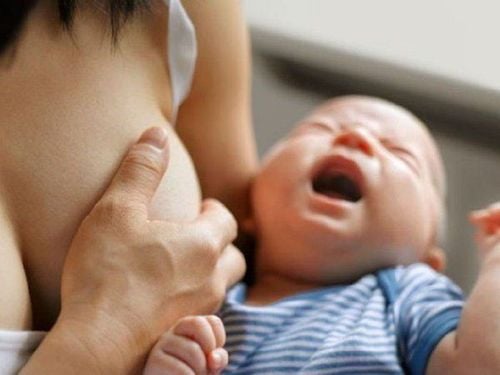
3. Treatment of convulsions in infants
Principles of treatment of neonatal convulsions include: respiratory support, anticonvulsant and specific treatment according to the cause of the disease. Specifically:Airway clearance: Suction viscous sputum; Respiratory support: Option to give the child oxygen or intubate to help with breathing depending on the degree of hypoxia; Anticonvulsants: Use anticonvulsants Phenobarbital or other appropriate drugs as prescribed by the doctor; Treatment of the cause: As soon as the cause of the seizure is detected in a child, it is necessary to treat it according to the specific cause of the disease. The causes of hypoglycemia, hypocalcemia, hypomagnesemia, hyponatremia, pyridoxine dependence, cerebral hemorrhage - meningoencephalitis, meningitis, etc., are treated according to each appropriate regimen according to indications. doctor.
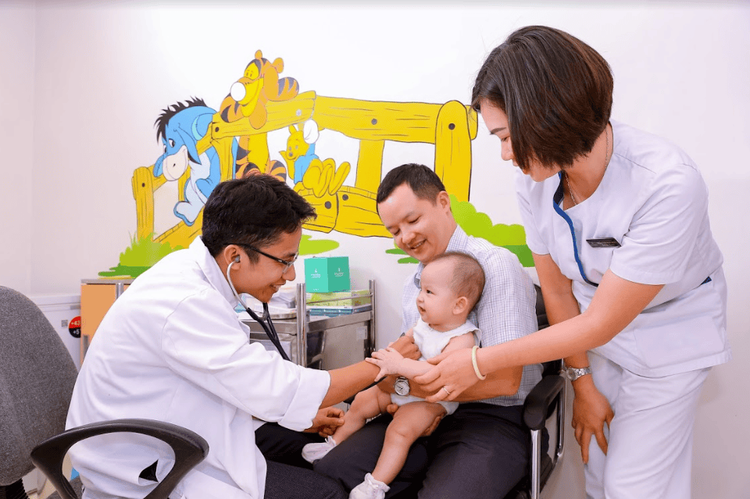
As a key area of Vinmec Health system, Pediatrics Department always brings satisfaction to customers and is highly appreciated by industry experts with:
Gathering a team of top doctors and nurses in Pediatrics : consists of leading experts with high professional qualifications (professors, associate professors, doctorates, masters), experienced, worked at major hospitals such as Bach Mai, 108.. Doctors All doctors are well-trained, professional, conscientious, knowledgeable about young psychology. In addition to domestic pediatric specialists, the Department of Pediatrics also has the participation of foreign experts (Japan, Singapore, Australia, USA) who are always pioneers in applying the latest and most effective treatment regimens. . Comprehensive services: In the field of Pediatrics, Vinmec provides a series of continuous medical examination and treatment services from Newborn to Pediatric and Vaccine,... according to international standards to help parents take care of their baby's health from birth to childhood. from birth to adulthood Specialized techniques: Vinmec has successfully deployed many specialized techniques to make the treatment of difficult diseases in Pediatrics more effective: neurosurgery - skull surgery, stem cell transplantation. blood in cancer treatment. Professional care: In addition to understanding children's psychology, Vinmec also pays special attention to the children's play space, helping them to have fun and get used to the hospital's environment, cooperate in treatment, improve the efficiency of medical treatment. Doctor Ho Thi Hong Tho has 10 years of experience in the field of pediatrics and neonatology, with strengths in child nutrition, pediatric emergency resuscitation, and treatment of pediatric diseases from basic to advanced levels. Doctor Tho is a former lecturer in Pediatrics at Thai Binh University of Medicine and Pharmacy. During his work, Dr. Tho regularly participates in training courses to improve his expertise. Currently, Dr. Tho is working and working at the Department of Pediatrics - Vinmec Phu Quoc International General Hospital.
To register for examination and treatment with pediatricians at Vinmec International General Hospital, please click the "Contact Us" button on the website or register online HERE.
LEARN MORE
How to handle when a baby has a high fever convulsion Fever convulsion in young children and the notes parents need to know for timely handling Notes when using anticonvulsants when having high fever for children






